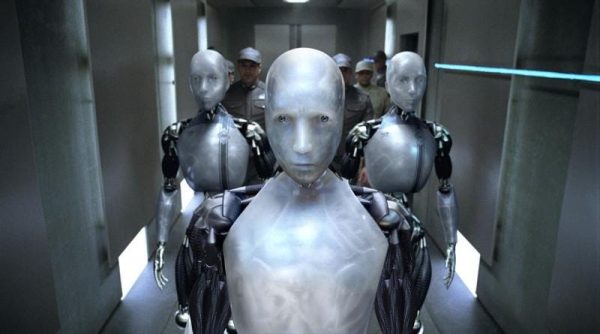Reading Isn’t Boring
Why School English Curriculums Should Include More Science Fiction
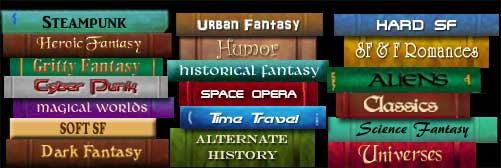
Picture from otherworlds.net
A collective groan goes out as the teacher passes out copies of The Odyssey.
“Why do we have to read this?” students ask.
“What’s the point?”
“This is so boring!”
“It’s a classic!” the teacher argues. He then goes on to explain that this is the epitome of fine literature, and how we, the class, simply can’t appreciate it because we are tasteless, uneducated barbarians.
How come this is always the situation for any mandatory school reading assignment?
Students are told year after year that reading should be enjoyable, intellectually fulfilling, and insightful to our own lives even today, but then we are reprimanded for not adoring our long, tortuous slog through edition after edition of painful “classics” that we are not given any choice in reading.
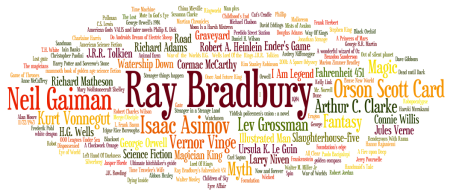
Don’t get me wrong; many of these books are actually very well-written and enriching, but I can’t help noticing a disappointing sameness in them all. It seems like the only criteria that books need to have to be put on a school reading list is that they’re about the past, they’re hard to read, and they’re hated by students.
This is a problem.
Now, I realize that not every book can appeal to everyone, but this preoccupation with “the classics” has gone too far. If we want to encourage high schoolers to read, then we shouldn’t just select books that they can’t understand, can’t relate to, and that don’t stretch their creativity.
So, the solution? Science fiction and fantasy. Books like Ender’s Game, Fahrenheit 451, and The Lord of the Rings, and even short stories like those included in I, Robot.
I think they would be a really enriching addition to the classroom because they’re often about the future or parallel universes, unlike most of the “classics” we normally read, so they stretch students’ creativity. And not to mention they teach some pretty powerful themes.
Most of the books that are assigned in school are cultural literature, relaying events of the past to give an in-depth picture of life and the culture at the time in which they were written. I have no opposition to this, since learning about the past can help guide us in the future. However, the future is the keyword. If all students ever learn about is the past, then they will only know the problems of the past, only the mistakes humanity has already made.
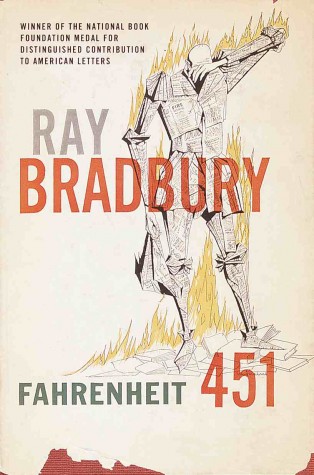
Science fiction and fantasy books, on the other hand, often have a focus on the future or on alternate universes. Dystopian themes, which have become increasingly common in modern literature, focus on future societies that have major failings and are usually very oppressive and cruel. These types of stories highlight problems in modern society, factoring in many years of development and amplification, and show how they could have major consequences in the future.
For example, in the novel Fahrenheit 451 by Ray Bradbury, which is actually taught in some high schools, censorship is a big theme. Our modern practice of censoring books, TV, and other media has developed into a government-sponsored crusade of burning any and all books in a highly restrictive dystopian America. A “fireman”, someone paid to burn books, sees the value in knowledge and secretly stores up books to later share with others. This puts censorship in a light that doesn’t simply highlight the problem that exists now, but the problem that could happen if we as a society don’t watch our actions.
I believe that if both future-focused books and past-focused books are read in English classes, then students will be able to analyze not only how the actions of the past have influenced today’s society, but also how the present will similarly influence the future.
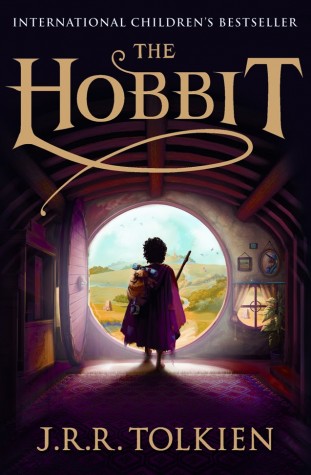
Another great feature of science fiction and fantasy novels is that they are very creative and inventive. Being able to think outside the box is an invaluable skill in both students and future workers, and the innovative worlds and plots of science fiction and fantasy allow students to see beyond the realities of our own world. If students dwell only in what’s “real”, they can easily become closed-minded and accustomed to everything having a black-and-white solution.
J.R.R. Tolkien’s The Hobbit, the prequel to the world-famous Lord of the Rings series, is a perfect example of this. Tolkien describes the fictional world of Middle-earth in amazing detail, with original languages, races, and environments. The book follows the adventure of a creature called a hobbit as he travels through this world on an adventure. Reading such an imaginative book like this opens up the idea to students that not every society is exactly like their own, challenging them to think not only through their own perspective, but through that of others as well. In an increasingly globalized world, students need to develop this sense of openness, so they can work and live with all different kinds of people in all different kinds of environments. If students can learn and appreciate the history of a fantasy world like Middle-earth, they can do so with the history and cultures of other countries.
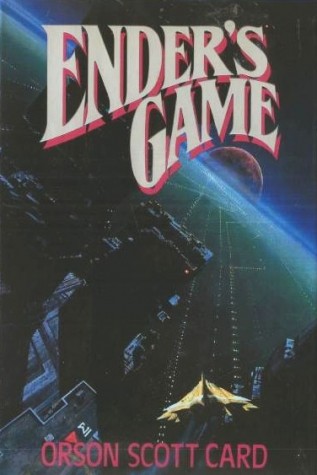
Lastly, science fiction and fantasy novels contain some pretty powerful themes. A lot of the “classic” novels that English classes read have great themes as well, but it often feels like, though important, they are all the same. Although these themes should still be analyzed in class, they are not the only themes that are important for students to see.
For example, Ender’s Game by Orson Scott Card is to me a thematically wonderful sci-fi book. Set on Earth, far in the future, it follows a boy named Ender as he is trained to battle a race of aliens trying to destroy the Earth. In the very end, Ender discovers that his “training” was actually a series of real battles and he has destroyed the entire race, save one egg. Ender decides to save the egg and allow the race to grow again out of mercy. It contains so many powerful themes, such as how actions that may seem small to us, like Ender completing his training, actually can have serious consequences; or how every life has value, even a race that threatened Ender’s entire way of life.
The books I previously mentioned before also have powerful themes. In Fahrenheit 451, the concept of censorship taken to an extreme is criticized, and Bradbury demonstrates the power of knowledge.
The Hobbit gives a picture of diversity, with different races living and working together. It puts racism into an entirely objective perspective and highlights not only the problem of racism, but also paints the picture of how these different races can live in harmony.
Yes, I realize most of these themes can also be found in some form in the “classic” books as well. That’s actually my point. I believe that most of the books that English classes are assigned to read at present are very good books, and very enriching. However, I feel that the lack of variation drives students away from reading and that there’s so much more to the literary world than just a few particular kinds of books. Including even a few science fiction and fantasy novels to a course’s required reading list could benefit students in so many ways and open their minds up to whole new worlds and realities.
“Individual science fiction stories may seem as trivial as ever to the blinder critics and philosophers of today–but the core of science fiction, its essence, has become crucial to our salvation if we are to be saved at all.” –Isaac Asimov, author of I, Robot and the Foundation series







